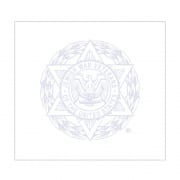The Gulf War
By Herb Rosenbleeth
This summer marks 30 years since the beginning of the Gulf War, which began as Operation Desert Shield and was soon followed by Operation Desert Storm, the combat part of the conflict.
On August 2, 1990, Iraqi forces invaded and occupied Kuwait, an act which the United Nations Security Council condemned. President George H. W. Bush and British Prime Minister Margaret Thatcher deployed forces to Saudi Arabia and urged other countries to do so as well. The goal of the Gulf War was to prevent Saddam Hussein from completely capturing Kuwait and to throw Iraqi forces out of the area of Kuwait which they were occupying.
Desert Storm, the name given to the combat operation, began on January 17, 1991, with an exceptionally powerful aerial and naval bombardment. There was great fear of what dangers U.S. and coalition forces might encounter. The Washington Post published a big editorial on the potential casualties we would face if Saddam Hussein used chemical weapons against our ground forces. Many also believed that Iraqi forces were solidly dug in and that it could be a lengthy, hard fought battle to dislodge them.
Thankfully, the ground assault did not take long. The U.S.-led coalition quickly liberated Kuwait and advanced into Iraq. Saddam Hussein’s forces were defeated and a ceasefire was declared only 100 hours after the ground campaign started. Aerial and ground combat were confined to Iraq, Kuwait, and to some areas on the border with Saudi Arabia. Iraq launched Scud missiles against certain military targets in Saudi Arabia and against Israel.
The Scud missiles targeting Israel resulted in the death of 74 Israelis and approximately 230 Israelis were injured. Most of these were indirect casualties, such as heart attacks. In response to the threat of Scud attacks against Israel, the U.S. sent a Patriot missile air defense artillery battalion to Israel along with two batteries of MIM Patriot missiles to protect civilians. One of the most damaging attacks caused by a Scud missile occurred in Dhahran, Saudi Arabia, when a Scud missile hit the barracks of the 14th Quartermaster Detachment, a reserve unit from Pennsylvania. The attack killed 28 soldiers and wounded more than 100 others.
While U.S. casualties from the fighting turned out to be extremely low, many returning soldiers reported a phenomenon known as Gulf War illness. This is a very important issue to this day, generally covered in various legislative proposals targeting burn pits.
I would like to give a shout out to those members of JWV whom I know were part of in the Gulf War victory.
Rochel Hayman is JWV’s Gulf War Committee Chairperson. During the Gulf War Hayman served in the Air Force as a broadcaster with the Armed Forces Radio and Television Service (AFRTS) in Dahran, Saudi Arabia. She recently completed her term as the Commander of the JWV Department of the Southwest.
Jeff Sacks served as a reservist who was activated for Desert Shield. Sacks was the Company Commander of the 822nd Military Police Company throughout Desert Storm. The 822nd guarded Iraqi prisoners of war. Sacks recently served as the JWV Department Commander of Illinois. Retired Major Sacks is also active at the national level of the Jewish War Veterans.
Chaplain Jacob Goldstein was mobilized with the New York State National Guard. The U.S. Army assigned Goldstein to the Patriot Battery in Israel. Goldstein became the senior Jewish Chaplain in the U.S. Army and completed his service career as a full Colonel.
Cliff Crystal was an Army reservist from the Washington, D.C. area. He used to come by the museum and JWV headquarters regularly. Cliff was mobilized for the Gulf War. When he returned he was very sick and he died soon thereafter. In retrospect, he may well have been a casualty of the burn pits.
Steve Robertson served on the legislative staff of the American Legion when he was mobilized. His unit was the 276th Military Police Company of the Washington, D.C. National Guard. Robertson says that in Passover of 1991, Jewish personnel in the gulf area were given the opportunity to participate in Passover services and a Seder on a ship. Robertson says approximately 450 attended. The program lasted for three days. Robertson had an outstanding career as an advocate for veterans and eventually became the Staff Director of the Senate Committee on Veterans Affairs.
Nelson Mellitz served with the Defense Logistics Agency as a Command Service Contracting Officer during the Gulf War. He is an outstanding JWV leader who has recently been the Department Commander of New Jersey. Retired Colonel Mellitz currently serves as JWV’s National Quartermaster.
The Jewish War Veterans of the USA is very proud of those of you who helped win the Gulf War! We are eager to see your participation in JWV and your number of members continue to grow, and we look for our Gulf War veterans to move into positions of leadership in JWV.
Volume 74. Number 2. 2020




